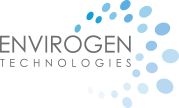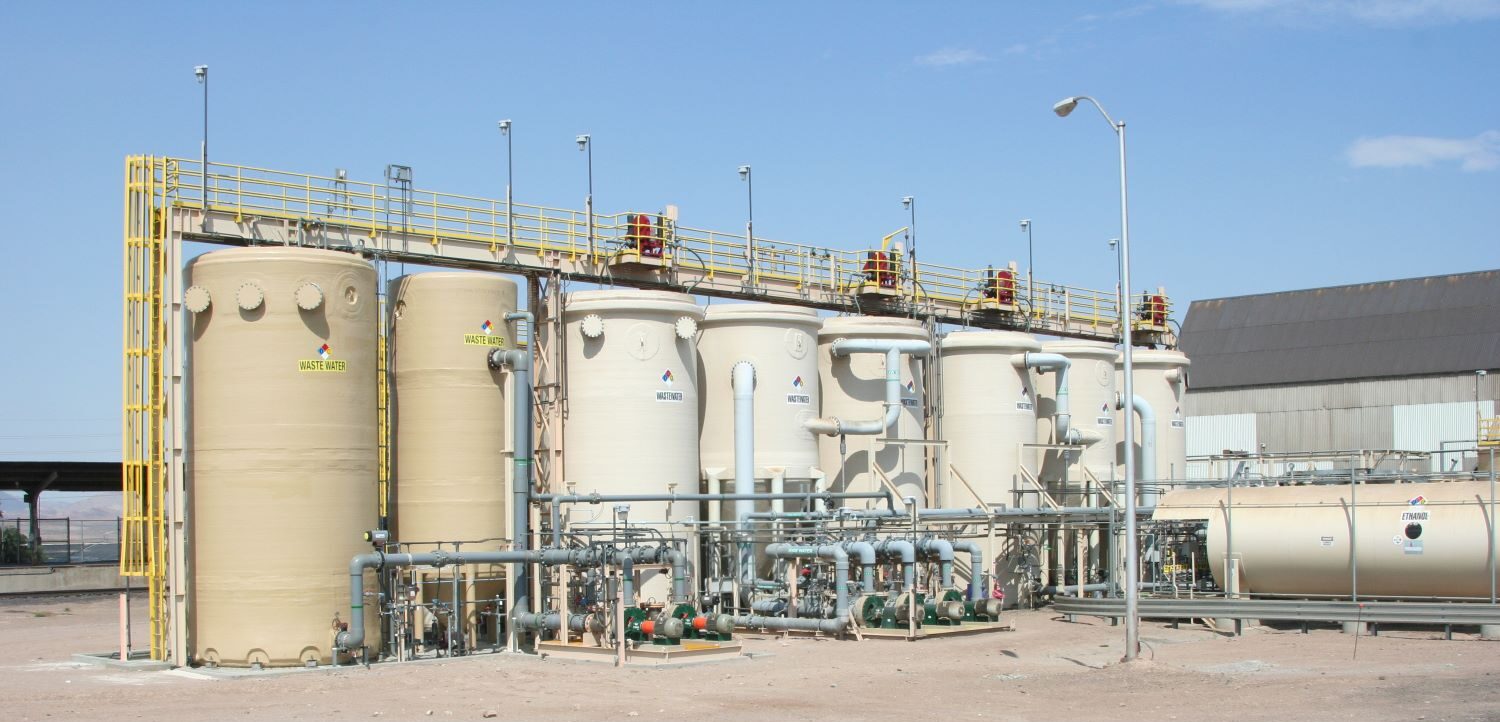Envirogen to work with major Israeli water treatment firm to bring proven, high-performance “green” technology and perchlorate handling expertise to the Middle East
Envirogen Technologies, Inc. (Envirogen), in a joint venture with Shikun & Binui Water Ltd., a fully owned subsidiary of Shikun & Binui (TASE: SKBN), Israel’s largest construction and real estate group, announced today that it has been selected to perform a pilot-scale demonstration of its biological fluidized bed reactor technology (FBR) for the remediation of perchlorate-laden groundwater in the Israeli city of Ramat Ha’Sharon.
The FBR pilot demonstration was designed in response to an Israeli Water Authority request for proposal to address pollution at a former Israel Military Industries (IMI) site in the city, located north of Tel Aviv. The pilot is aimed at demonstrating the fluidized bed reactor’s efficacy for removing high levels of perchlorate along with nitrates, RDX and chromates from contaminated groundwater at the site. The pilot project would lead to the development of a full-scale treatment system that would be one of the largest perchlorate treatment installations in the world at a site that is destined for residential development.
According to Dr. Todd Webster, Vice-President for Envirogen, the upcoming pilot study will further validate the FBR’s position at the forefront of technology for dealing with high levels of perchlorate contamination. “Having been involved in its development and optimization over the past two decades, we’ve known for some time how ideal the fluidized bed reactor is for treating contamination of this nature,” Webster said. “The FBR’s selection over several competing technologies proposed for this project is further proof of its growing acceptance in the industry. The process stability is excellent, even in cases of higher loadings. It’s also a low-cost and environmentally-friendly treatment option with greatly reduced chemical, energy and labor requirements and minimal waste generation. In Ramat Ha’Sharon, perchlorate loadings and flow rates are potentially an order of magnitude higher than what has been addressed before, and we’re confident of our ability to scale the FBR to this application. We’re excited to bring these elements to this project and to the region, and excited about the opportunity to partner with Shikun & Binui,” he continued.
According to Orry Ben-Porath, Managing Director of Shikun & Binui Water, the combination of Envirogen’s technology offerings and a shared business philosophy made the two companies an excellent fit. “At Shikun & Binui we have a deep commitment to the idea of sustainability in all we do, hence we design each project with its total lifecycle cost in mind,” Ben-Porath said. “We found in Envirogen a company that seeks out and optimizes the most effective air and water treatment technologies, and also matches our corporate vision in important ways. Like us, Envirogen strives to deliver sustainable solutions to customer needs based on long-term relationships, supported by a flexible business model that includes service options and performance guarantees. They have a similar focus on the total cost of a project, from both an economic and environmental standpoint, and how that translates into the lowest lifecycle cost for the customer. We’re confident that this upcoming pilot demonstration will be a success, and we look forward to bringing the Envirogen fluidized bed bioreactor and its other technologies to our municipal and industrial clients in Israel,” he added.
The pilot plant to be developed for the Ramat Ha’Sharon site will consist of two fluidized-bed bioreactors, a solids-handling system and an effluent polishing system. Influent loadings of perchlorate in excess of 400,000 micrograms per liter (µg/l) will be reduced to a guaranteed maximum of 4 µg/l, along with reduction of nitrates, chromates and the military explosives RDX to meet regulatory standards.
Israel’s Water Authority is the government’s executive branch in charge of the nation’s water economy. Sara Elhanani, head of the Water Quality department in the Water Authority said, during a recent site visit: “The area around Ramat Ha’Sharon is one of the worst contamination events we’ve discovered in groundwater in Israel thus far, both in the diversity of contaminants and its spatial extent. The volume of perchlorate contaminated water in the aquifer is estimated at 630 million cubic meters. Recently, an inter-ministerial agreement was signed with the Water Authority, supported by the Director General of the Prime Minister’s office, settling the financing of the groundwater rehabilitation in this area, in the range of 600 million NIS (156 million USD). This is an important step by the State in addressing its responsibility for rehabilitation of groundwater polluted many years ago by Israel’s important security activities, when we and the rest of the world lacked awareness of the environmental consequences of these actions. Today, we are gearing up for a full scale rehabilitation program, through the building of a demonstration site, testing innovative technologies for the treatment of diversified contaminants generated by the military industry”.
Envirogen’s biological fluidized bed reactor is a fixed-film bioreactor in which biological media is suspended, or fluidized, within the reactor vessel by the upward flow of water through the system. The suspended media provides a large surface area for microbial growth and allows a biomass density several times greater than that of other biological fluidized bed reactor designs under similar loading conditions. Microorganisms in the reactor completely destroy influent perchlorate and other targeted contaminants under anoxic conditions, while generating limited waste by-products. Over the last 15 years, Envirogen has installed and started up over 60 aerobic and anoxic FBRs throughout the United States and worldwide – advancing the fluidized bed reactor technology with these systems to handle a broad range of organic contaminants, as well as inorganics such as nitrate, perchlorate and selenium. Applications for Envirogen’s FBR technology range from groundwater remediation and mining water treatment to wastewater and portable water treatment.
How does a fluidized bed reactor work? An overview of Envirogen’s patented FBR treatment process/fluidized bed reactor design. (US Patents: 6706521, 5750028, 5788842, 7754159, 7611890, 7572626, 8323496, 6830922).

